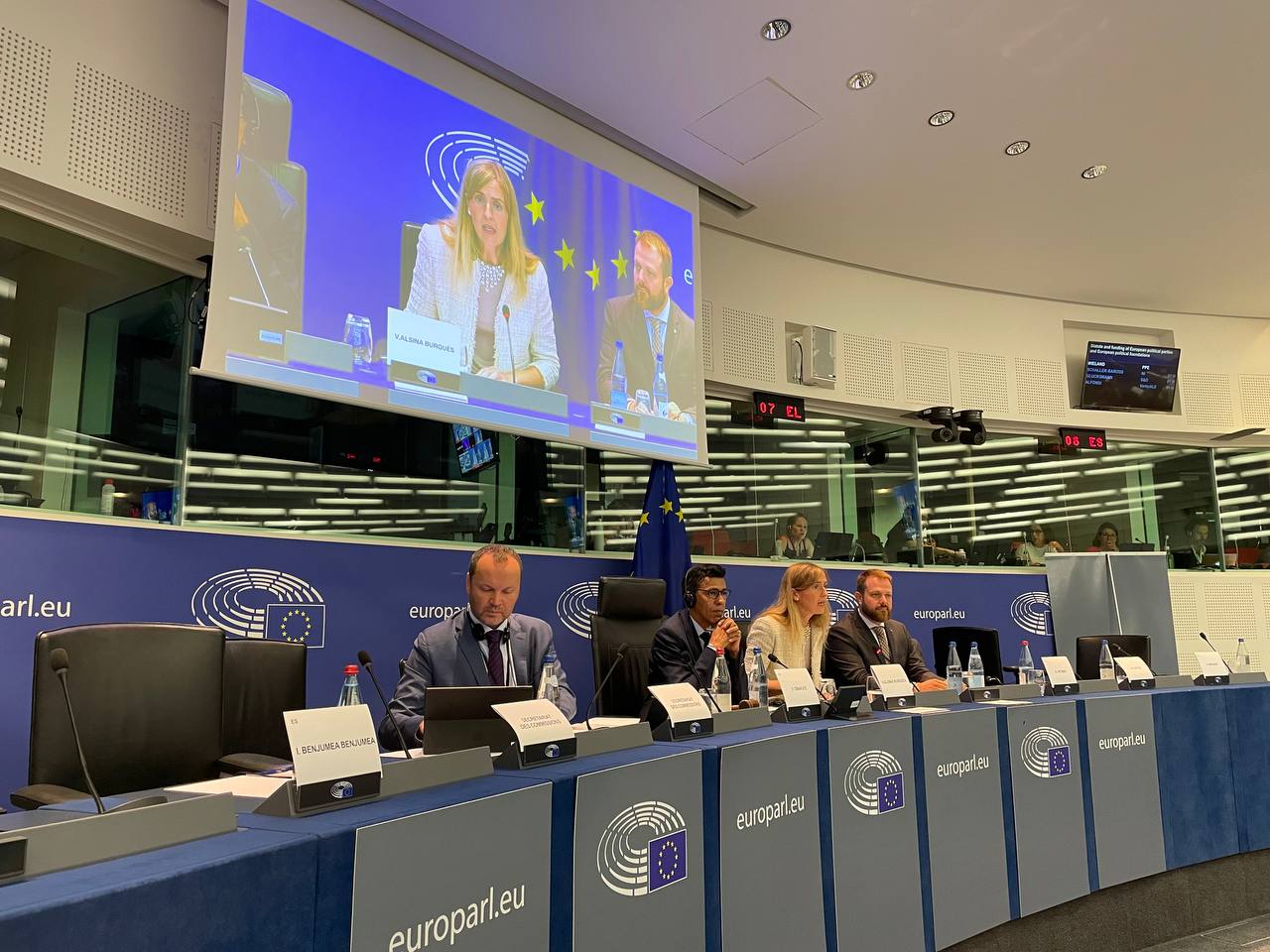- Invited by the Chair of the Committee on Regional Development of the European Parliament, Alsina has presented the report ‘Regions for EU Recovery’s Benchmark Study on the Implementation of Next Generation EU Funds’ on behalf of a network formed by 32 territories of 10 member states
- It is exceptional for a member of a non-state government to intervene at the European Parliament

The Catalan Minister for Foreign Action and Open Government, Victòria Alsina, participated this Thursday at the Committee on Regional Development of the European Parliament in Strasbourg, invited by the chair of this commission, the MEP Younous Omarjee. It is exceptional for a member of a non-state government to intervene at the European Parliament, and it is actually the first time a member of the Government of Catalonia speaks officially at a session. Minister Alsina did it in representation of the alliance Regions for EU Recovery to present the study Regions for EU Recovery’s Benchmark Study on the Implementation of Next Generation EU Funds, a benchmark study on the management of Next Generation EU Funds at a regional level.
In this study, most of the participating regions reported that multi-level governance and subsidiarity principles had not been respected in the implementation of the resilience and recovery plans, and showed their concern for the recentralization of the management of the European funds. “We are convinced that the transformative power of regions is necessary”, stated Minister Alsina to the Committee on Regional Development of the European Parliament, where she reminded “our first-hand knowledge about the realities on the ground and the close connexion with our citizens”.
To show an example of the need for this major role of regions in the management of the European funds, Minister Alsina talked about the experience of Catalonia. In the period 2014-2020, Catalonia received more than 2,000 millions of euros from European funds managed directly from Europe, an equivalent quantity to the one Finland received, and that exceeds what, in terms of population and GDP, Catalonia should have received. “When money is distributed in a competitive way from Europe, Catalonia has the capacity to absorb more funds than the ones she should receive”, Minister Alsina pointed out. However, in the current situation with Next Generation funds, “in which there is a governance system completely centralised, Catalonia cannot compete freely for these funds”, Catalonia has received around 17% of the funds she should have received based on its population, according to preliminary data.
Minister Alsina intervened on behalf of the 32 territories of 10 different member states that form the alliance Regions for EU Recovery and stressed that, despite the diversity, “we all share the vision to make a better Europe”, a goal for which she insisted “it is necessary to respect the subsidiarity and multi-level governance principles”.“Not taking the regions into account is a serious mistake that we believe is causing an important damage in the recovery after the pandemics”, the Minister warned. Alsina claimed that regions “have to continue to be key actors in the politics and in the cohesion European funds”.

The chair of the Committee on Regional Development, Younous Omarjee, encouraged the network that Minister Alsina represented to expand, adding more regions to it and to continue its work, as well as to keep the Eurochamber posted about its results. Victòria Alsina also had the chance to give the Regions for EU Recovery’s benchmark study to European Commissioner for Cohesion and Reforms, Elisa Ferreira, with whom she was able to discuss once the session ended.
About the alliance
Regions for EU Recovery is an alliance of more than 30 European regions led by Catalonia that claims a major role of regions in the decision-making process as well as a reinforcement of their role in the implementation on the Recovery and Resilience plans.
Minister Victòria Alsina, Minister-President of Flanders, Jan Jambon, and president of the Bratislava region, Juraj Droba, already presented this benchmark study last June in Brussels.
